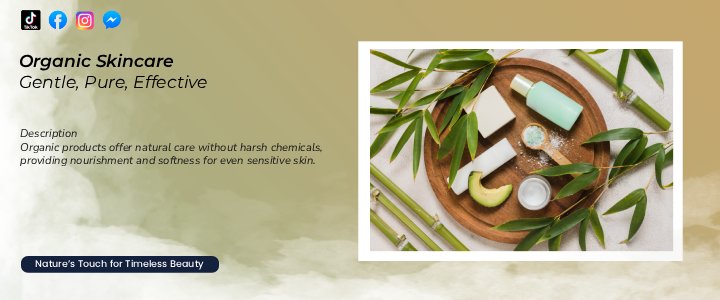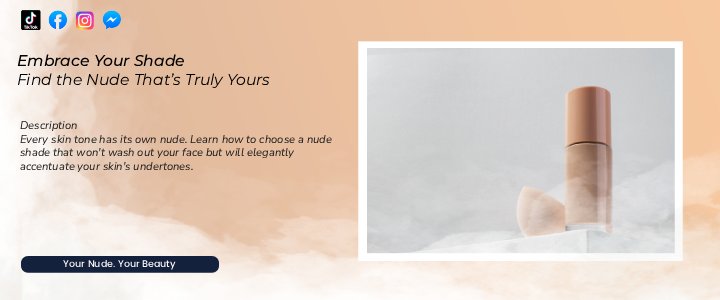What Is Organic Skincare?
Organic skincare is more than just a beauty trend—it’s a shift toward using natural, plant-based ingredients that are grown without synthetic chemicals, pesticides, or genetically modified organisms. The idea is simple: what you put on your skin matters just as much as what you put in your body.
Unlike conventional products that may rely on artificial fragrances or harsh preservatives, organic skincare focuses on purity and sustainability. This approach appeals not only to those with sensitive skin but also to people who value eco-friendly living.
The Benefits of Organic Skincare
Choosing organic skincare offers several unique advantages. While results may vary depending on skin type, studies and dermatologists often point to key benefits:
Fewer Harsh Chemicals
Organic products avoid parabens, sulfates, and synthetic dyes, reducing the risk of irritation.
Rich in Nutrients
Plant-based oils, extracts, and botanicals are naturally packed with antioxidants, vitamins, and essential fatty acids.
Better for Sensitive Skin
Gentle formulas with fewer artificial additives can soothe rather than trigger irritation.
Environmentally Friendly
Organic farming supports biodiversity and avoids harmful pesticides, making it a more sustainable choice.
These advantages explain why organic skincare continues to gain popularity among both consumers and professionals.
Common Ingredients in Organic Skincare
Many organic skincare products highlight their use of well-known natural ingredients. Here are some that often appear in organic formulations:
- Aloe Vera: Calms inflammation and hydrates the skin.
- Shea Butter: Provides deep moisture and nourishment.
- Coconut Oil: Acts as a natural emollient and antibacterial agent.
- Green Tea Extract: Offers antioxidant protection.
- Rosehip Oil: Helps reduce scars and fine lines with its high vitamin C content.
These ingredients are chosen not only for their natural origin but also for their proven ability to support skin health.
How to Choose the Right Organic Skincare Products
Not all products labeled “organic” are truly certified. Marketing terms can be misleading, so it’s important to know what to look for.
| What to Check | Why It Matters |
|---|---|
| Certification Labels | USDA Organic, COSMOS, or ECOCERT labels ensure authenticity. |
| Ingredient List | Shorter lists with recognizable plant-based ingredients are often more reliable. |
| Fragrance-Free Options | Natural essential oils are preferable to synthetic perfumes. |
| Packaging | Eco-friendly packaging supports the sustainability values of organic skincare. |
Reading labels carefully helps avoid products that simply use “green” marketing without offering true organic benefits.
Organic Skincare vs. Natural Skincare
It’s easy to confuse “organic” with “natural,” but there’s an important difference.
- Organic: Ingredients grown and processed under strict regulations without synthetic chemicals.
- Natural: May include plant-based ingredients but not necessarily certified or free from pesticides.
While both can be beneficial, organic skincare carries an added assurance of safety and sustainability.
Practical Tips for Starting an Organic Skincare Routine
If you’re interested in trying organic skincare, it’s best to start simple. Choose a few essentials before building a full routine.
- Begin with a cleanser and moisturizer that fit your skin type.
- Introduce a plant-based oil like jojoba or rosehip to lock in hydration.
- Always use sunscreen—organic or mineral-based—to protect from UV damage.
- Patch-test new products to ensure compatibility with your skin.
Gradual adoption helps you see how your skin responds without overwhelming it with too many changes at once.
Conclusion
Organic skincare reflects a growing awareness that healthy skin care is part of a larger lifestyle choice. By selecting products made with natural, science-backed ingredients, you not only care for your complexion but also contribute to environmental sustainability.
Whether you’re motivated by health, sensitivity, or eco-consciousness, exploring organic skincare can be a rewarding step. The key is to stay informed, read labels, and choose products that align with both your values and your skin’s needs



